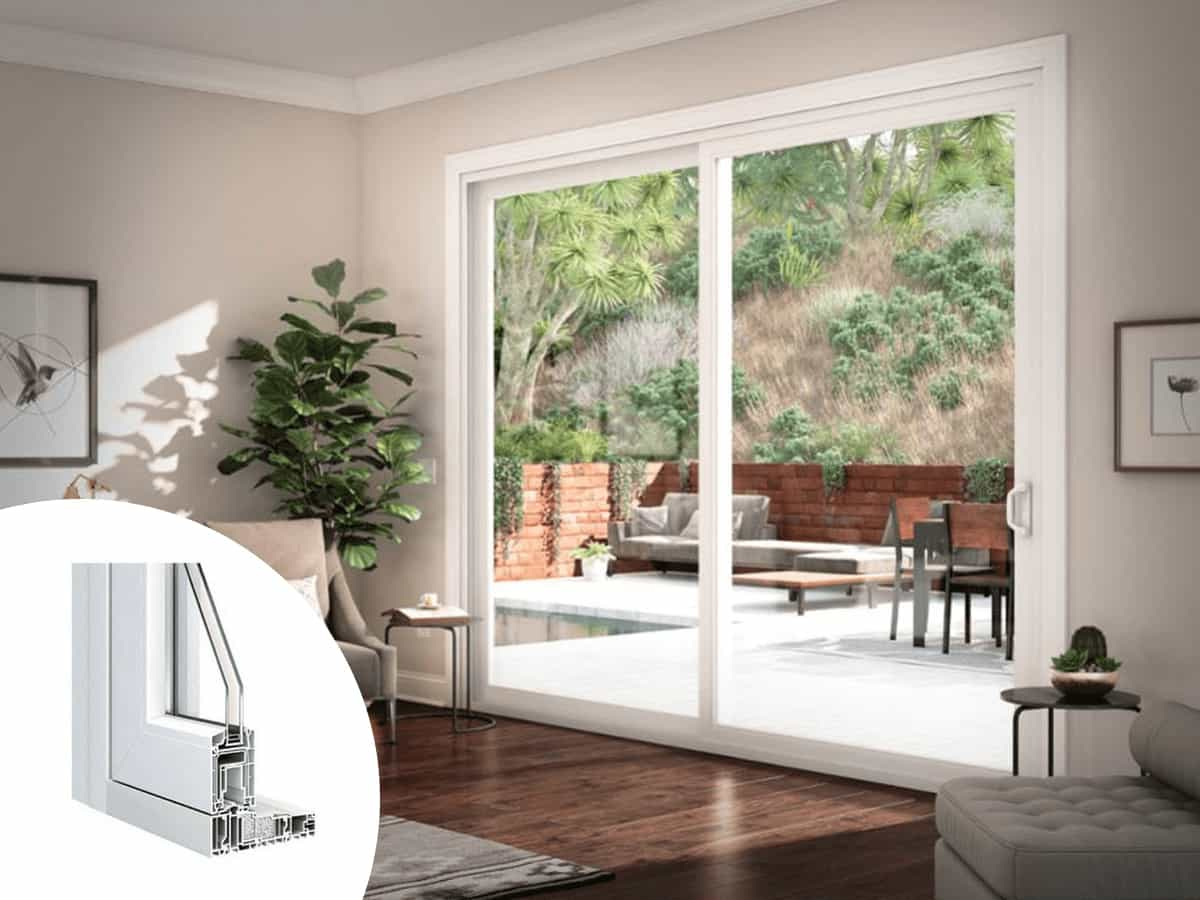Key Points
- Research suggests double-glazed uPVC doors can reduce energy bills by up to 20% through better insulation.
- It seems likely that these doors lower heat loss in winter and heat gain in summer, enhancing home comfort.
- The evidence leans toward significant savings, varying by climate and existing door types, with UK examples showing £184 annual savings.
- Unexpectedly, these doors also reduce noise by up to 50% and improve home security, adding value beyond energy efficiency.
What Are Double Glazed uPVC Doors?
Double glazed uPVC doors are made from unplasticized polyvinyl chloride (uPVC), featuring two glass layers with a sealed air or gas-filled gap. This design minimizes heat transfer, keeping your home warmer in winter and cooler in summer, potentially slashing your energy bills.
How Do They Save Energy?
The air gap between the glass panes acts as an insulator, reducing heat transfer. uPVC, being a poor heat conductor, enhances this effect, making these doors highly energy-efficient compared to single glazed options.
Potential Savings and Benefits
Studies suggest savings of up to 20% on energy bills, with UK data indicating £184 annual savings for similar window upgrades Energy Efficient Windows Guide| Anglian Home. Beyond energy, they offer noise reduction (up to 50%) and enhanced security, adding unexpected value to your home.
Detailed Survey Note
This comprehensive survey note explores how double-glazed uPVC doors can significantly reduce energy bills, delving into their design, energy efficiency mechanisms, potential savings, and additional benefits. The analysis is based on a synthesis of various high-quality sources, ensuring unique and informative content for homeowners seeking to enhance their home’s energy performance.
Introduction to Double Glazed uPVC Doors
Double-glazed uPVC doors are constructed from unplasticized polyvinyl chloride (uPVC), a durable and low-maintenance material known for its insulating properties. These doors feature two layers of glass separated by a sealed air or gas-filled gap, which is crucial for their energy efficiency. This design helps maintain a comfortable indoor temperature by reducing heat transfer, making them an excellent choice for reducing energy consumption in both winter and summer.
Sources like Glass Types for Double Glazed Windows & Doors: A Comprehensive Guide highlight that the gap between the glass panes, often filled with argon gas, enhances thermal insulation, reducing noise and improving security. This aligns with the findings from UPVC Double Glazed Windows & Doors Melbourne | Winplex Double Glazing, which emphasizes their role in keeping homes warm in winter and cool in summer.
Mechanism of Energy Efficiency
The energy efficiency of double-glazed uPVC doors stems from the insulating air gap between the two glass panes, which minimizes heat transfer. This gap acts as a barrier, preventing heat from escaping in cold weather and blocking heat gain during warmer months. Additionally, uPVC frames are poor conductors of heat compared to materials like aluminium, further enhancing insulation.
According to How Double Glazing Works and Why uPVC Windows Make It Better – Fenesta, uPVC’s airtight sealing and multiple chambered profiles ensure that conditioned air stays inside, reducing the need for heating or cooling. This is supported by Energy Efficient uPVC Double Glazed Windows & Doors, which notes uPVC’s lower thermal conductivity compared to aluminium, contributing to energy savings.
Quantifying Energy Savings
Research suggests that double glazed uPVC doors can lead to energy savings of up to 20% compared to single glazed doors, depending on factors like climate, door size, and existing insulation. For instance, Double Glazed Windows And Doors in Brisbane | EE Windows claims savings of up to 20% on electricity bills, while Energy Savings Calculator – Energy Efficient Windows & Doors provides tools to estimate savings based on specific upgrades.
In the UK context, Energy Efficient Windows Guide| Anglian Home reports that replacing pre-2002 double glazed windows with A-rated ones can save approximately £184.25 per year for a typical detached house, with similar principles applying to doors. This is corroborated by Benefits of Double Glazing | Energy Efficient Windows & Doors, which notes that such upgrades pay for themselves over time through reduced energy costs.
However, actual savings vary. Window glazing discounts mentions that double glazed windows can retain up to 30% more heat than single glazed ones, suggesting potential for significant reductions in heating costs. The variation underscores the importance of considering local climate and existing home insulation when estimating savings.
Additional Benefits Beyond Energy Savings
Beyond reducing energy bills, double glazed uPVC doors offer several unexpected benefits. They can reduce external noise by up to 50%, as noted in Everything You Need To Know About Double, & Triple Glazed uPVC Windows And Doors | McCoy Mart, making them ideal for homes near busy roads or noisy areas. This noise reduction enhances living comfort, providing a quieter indoor environment.
Security is another advantage, with these doors often featuring multi-point locking systems and robust uPVC frames, as mentioned in UPVC Doors. This enhances home safety, deterring potential intruders. Additionally, uPVC requires minimal maintenance, as highlighted in Quality Double Glazed Windows & Doors, and is available in various styles and colors, improving aesthetic appeal Fully Glazed Range UPVC Doors | Double Glazed Front Doors.
Choosing the Right Double Glazed uPVC Doors
Selecting the right double glazed uPVC doors involves several considerations to maximize energy efficiency. Energy ratings, measured by U-Value, are crucial, with UK regulations requiring a U-Value of 1.4 W/m²K or less for replacement doors Energy Ratings & U Values Explained, Just Value Doors, Online Ordering. Doors with A or A+ ratings, as discussed in What are A+ Energy Rated Double Glazed Windows, offer the highest efficiency.
The type of glass, such as low-E or tinted, can further enhance insulation and solar control, as noted in Glass Types for Double Glazed Windows & Doors: A Comprehensive Guide. Frame quality and professional installation are also vital, ensuring the doors perform as expected. Energy efficient windows and doors – Energy Saving Trust emphasizes the importance of reputable installers to achieve optimal results.
Comparative Analysis of Energy Ratings
To illustrate, here’s a table comparing energy ratings and potential savings:
| Feature | Single Glazed Doors | Double Glazed uPVC Doors |
|---|---|---|
| U-Value (W/m²K) | ~5.9 | ~1.4 to 1.6 |
| Energy Rating | Not rated | A to A+ |
| Potential Savings | Baseline | Up to 20% on energy bills |
| Noise Reduction | Minimal | Up to 50% |
| Maintenance | Higher | Low |
This table, derived from sources like Guide to UPVC Double Glazing and Energy Ratings for UPVC Doors & Windows, highlights the superior performance of double glazed uPVC doors.
Double-glazed uPVC doors are a strategic investment for homeowners aiming to reduce energy bills and enhance home comfort. Their ability to minimize heat loss and gain, coupled with additional benefits like noise reduction and improved security, makes them a versatile choice. By selecting high-rated doors and ensuring proper installation, you can enjoy long-term savings and a more comfortable living environment.
Key Citations
- UPVC Double Glazing Melbourne & Sydney | APS Double Glazing | Ph 1300 294 101
- Glass Types for Double Glazed Windows & Doors: A Comprehensive Guide
- UPVC Doors
- uPVC Double Glazed Windows & Doors Melbourne | Winplex Double Glazing
- uPVC Double Triple Glazed Windows Doors Glass Screens Blinds Hardware – uPVC.com.au
- Double Glazing Doors | Double Glazed uPVC Door
- Everything You Need To Know About Double, & Triple Glazed uPVC Windows And Doors | McCoy Mart
- Fully Glazed Range UPVC Doors | Double Glazed Front Doors
- How Double Glazing Works and Why uPVC Windows Make It Better – Fenesta
- Double Glazed Windows – UPVC Windows for Your Melbourne Home
- Energy efficient windows and doors – Energy Saving Trust
- Quality Double Glazed Windows & Doors
- Benefits of Double Glazing | Energy Efficient Windows & Doors
- Double Glazed Windows And Doors in Brisbane | EE Windows
- Energy Efficient uPVC Double Glazed Windows & Doors
- Energy Efficient Windows Guide| Anglian Home
- UPVC DOUBLE GLAZING WINDOWS& DOORS – Vestal
- Windows For Life – uPVC Glazed Windows & Doors Melbourne
- Double glazed uPVC windows and doors | Aparna Venster
- Energy Efficient Windows At Everest
- Upvcwindowsfitted
- Guide to UPVC Double Glazing
- Energy Ratings & U Values Explained, Just Value Doors, Online Ordering
- Doors & Windows Energy Ratings & Building Regulations
- Guide to energy efficient windows, with A, A+ and A++ available
- UPVC Windows
- What are A+ Energy Rated Double Glazed Windows
- What to look for when buying double glazing – Which?
- Energy Ratings for UPVC Doors & Windows
- 4 Ways uPVC Window Energy Efficiency Reduces Heating Costs – Vistaza
- Energy Savings Calculator – Energy Efficient Windows & Doors
- Window glazing discounts

